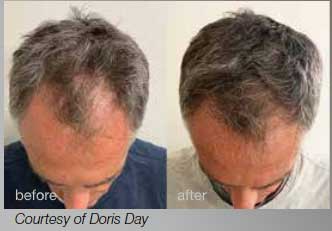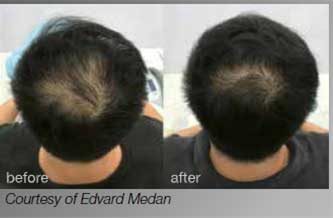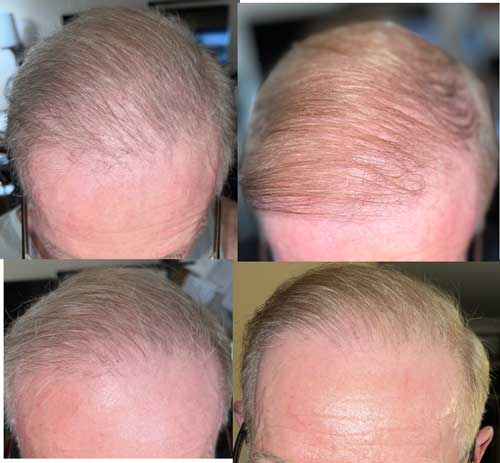HAIR RESTORATION
Laser Hair Restoration
Hair loss is a common problem for both men and women. For some, hair loss is a sign of ageing, loss of physical appeal and this may result in loss of self-esteem.
There are many modalities that can be used to restore and maintain our hair.
Hair transplants are expensive, and not everyone is a suitable candidate. Then, after the hair transplant you still have to struggle to maintain the hair you got.
Of course, we have medications that may help us maintain the hair, but there have to used consistently, or the effects will stop.
RESULTS OF LASER TREATMENT
Low level laser therapy has been shown to be effective in hair restoration efforts, leading to increased hair density and growth in both females and males.
However, high intensity laser treatment (HILT) has been shown to be more effective in stimulating the hair follicles. Its effectiveness can be enhanced by combining the laser with PRP injections, or even applying the PRP on the scalp after a laser treatment.


RESULTS OF LASER HAIR LOSS TREATMENT
- Prevents further hair loss
- Promotes new follicle growth
- Increased hair density and thickness
BEFORE AND AFTER HAIR RESTORATION TREATMENT
The top row is the hair growth after just two treatments. The bottom row is the before treatment.
Several treatments are recommended so stay tuned for the updated photos after a couple more treatments.
If it’s this much hair after just two laser hair restoration treatments, you can imagine what it’ll look like after a few more treatments.

LITERATURE REFERENCES:
Day, Doris, et.al., Non-ablative Er:YAG laser is an effective tool in the treatment arsenal of androgenetic alopecia, Journal of Cosmetic Dermatology, 2021.
This study used the same laser we have and patient satisfaction was 100%. (81.2%. (very satisfied) and 18.8% (satisfied). No “not satisfied” patients were recorded in this study).
